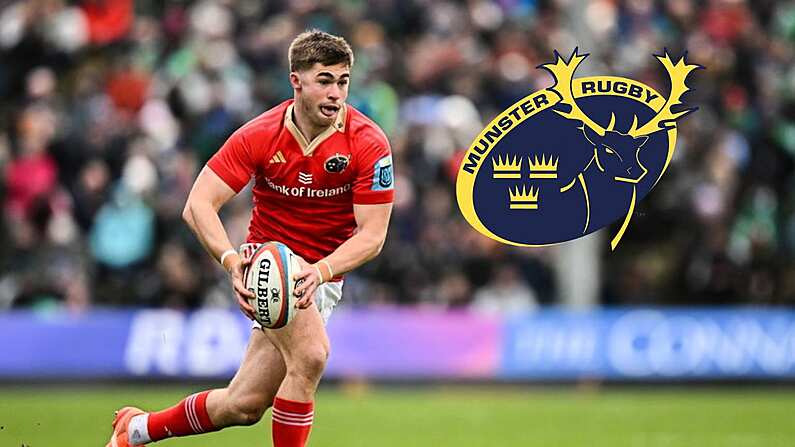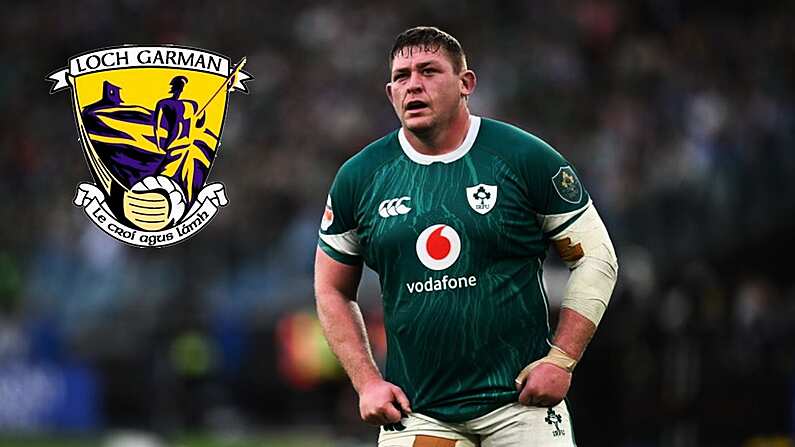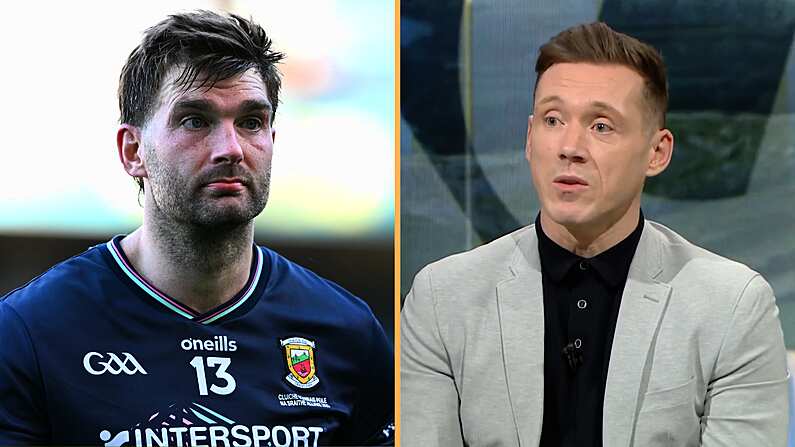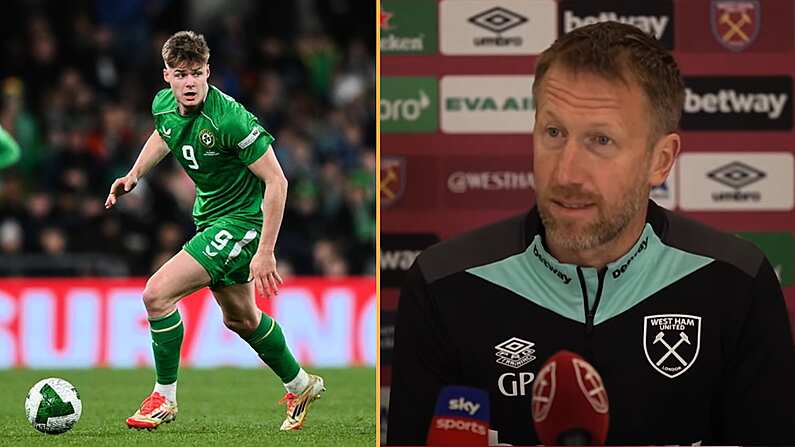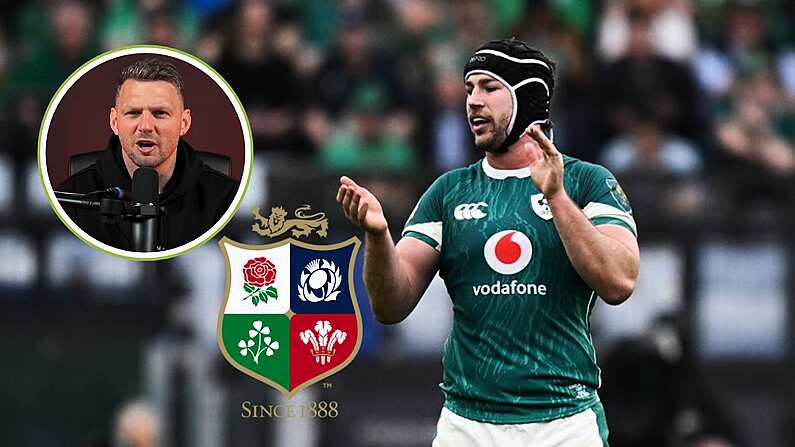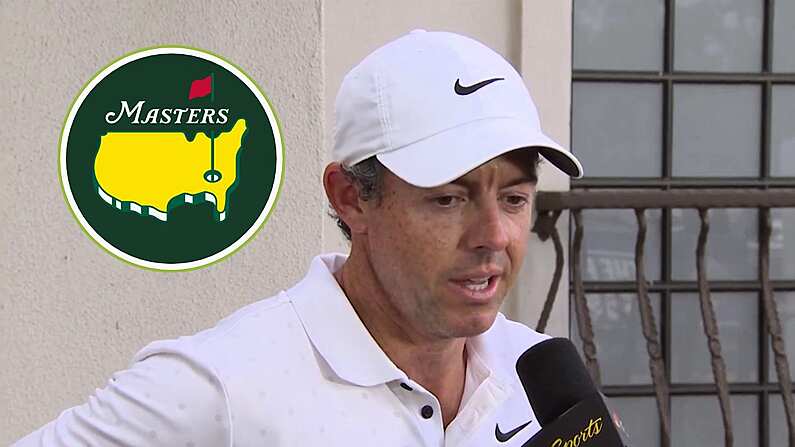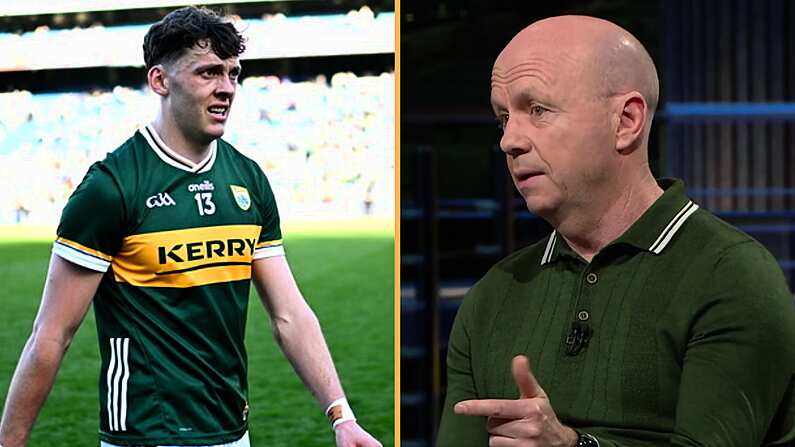There are many out there who don't get the appeal of pro-wrestling once you get past the age of 14. To the Nancy Grace's and Colin Cowherd's (both American journalists who tried to hijack the Ultimate Warrior's death and turn it into the usual steroid/Vince McMahon-bashing fare) of this world, wrestling is something for kids. And it is. To kids, it's sports, panto and wish-fulfillment all mixed together. Then as you grow up, some evolve their understanding and appreciation of it to mean something else, and some don't.
The "It's fake," angle is an easy reason for the latter camp to write off their sudden disinterest in the product, which is such a lazy argument it's barely worth putting any column inches into: in short, so are movies, TV dramas and reality TV. Reality TV has the most in common with pro-wrestling: staged drama played out by people often using turned up versions of their real life selves, being told to perform and improvise bullet-pointed storylines, and always conscious of a fourth wall that they routinely break. Though many claim to, look at almost everyone's EPGs and you'll see they succumb to some form of reality TV guilty pleasure. If it's not The X Factor, then it'll be The Apprentice or Dragon's Den, most reading this particular site have probably followed some kind of sports-related show like The Ultimate Fighter. Top Gear is another big one. If you enjoy Top Gear, you've really no basis criticising anyone for enjoying something that has a wink-and-nod relationship with authenticity. At least wrestlers do their own stunts.
They say when you're young, you watch football from the eyes of the players, admiring the individual skills on show and identifying with their mindset on the pitch. As you grow older, fans tend to look at it through the eyes of the manager, learning about tactics, formations, focusing on transfer strategies and squad unity instead.
The same happens for pro-wrestling fans. When we're young, all we want is for The Rock to win the title and for Scotty to do The Worm. If we see all of that, we've seen a good show.
You grow up and, for the most part, that starts to fade. Don't get me wrong, often you're still quite invested in the results of certain matches (see the stunned reaction of wrestling fans worldwide to The Undertaker losing at WrestleMania, for example). But all of a sudden, you start to view proceedings from a higher plane. Your main point of reference, for better or worse, is with the booker (or 'creative', as the booking team behind WWE are now known). You recognise the respective strengths and weaknesses of the roster then try imagine fitting everyone into their perfect place to produce the best end product. Much like a football manager, your end view of that product ultimately derives from how closely the booker matched what you had in your head with what appeared on screen. Or sometimes they can do something questionable, surprise you, and make it work. Then you digest this and incorporate it into all future thinkings.
If the likes of ESPN reporter, Cowherd, can't appreciate that standpoint then I'd question his ability to be able to stay relevant in delivering sports content to his listeners. When viewed through that lens, you see that the appeals are the exact same. It's just a case of, while some chose to spend their days watching NBA rather than NFL, others may chose to watch WWE ahead of both of them. Like sports, reality TV, movies and TV, it's just another way of keeping your eyeballs occupied during your downtime until the day you die.
Being a wrestling fan in 2014 is an ever-changing role, though, one that is constantly taking on new forms. Keep in mind that the majority of long-term, adult fans today began watching Hulk Hogan as a child in the 80's (the concept of fixing wrestling matches dates back as far as 267 AD - but the mass market ultimately dictates the terms) so, in terms of fans that have been smartened up to the business, we're the first or second generation. We're forging the path that others in future generations will follow.
What keeps grown adults interested in pro-wrestling is the same thing that keeps adults doing stupid dances to Gangnam Style at weddings. When Triple H speaks of fans being fickle, having a flavour of the month that we soon lost interest in as something else cool comes along, he's not lying. We are.
A great example given by Triple H in an in-ring promo is Fandango. The Raw after WrestleMania 29 saw a phenomenon being born: Fandango-ing. That is to say, the singing of Fandango's catchy, ballroom-inspired theme song while pointing your fingers in the air. As soon as the Brooklyn crowd that night started doing it, like all memes, it caught on. There's never any particularly good reason why people latch onto these things, they just do. And so we all did that for a while, then it got old and we got a bit bored of it, now we only really enjoy it for nostalgic purposes thinking back to how funny and random that whole original gag was.
These days, our funny chants include, "He's got the whole world in his hands" whenever the Wyatt Family are in the ring, and singing "John Cena sucks" in time with his theme music. And they're only the jokes that have gone mainstream. Say the words 'Don't hinder Jinder' or 'Jag Thindh' to the right wrestling fan and you'll have made a new friend.
When Daniel Bryan started raising his hands up and chanting, "YES!", we followed along because it seemed such an obvious thing to do. And when he added a "NO!" to his repertoire? Oh man, shit got real. Now we had an easy, catch-all way of registering our approval and disapproval of certain parts of the show. It's catchy, it's funny, and it's unsurprisingly catching on at a variety of mainstream sports events.
This isn't a new experience. Think back to every WWE promo for a decade being invaded by "What?!" chants after Stone Cold Steve Austin coined the catchphrase in 2001. John Cena's new, in-tune chant is an obvious take off Kurt Angle's old "You suck" chants to his music. Fans of WWE circa 1998-9 will remember "ASSHOLE!" being an almost automatic response to Vince McMahon's presence in the ring. Who can forget the epic "SLUT!" chants, too, that his daughter Stephanie lapped up for years (and new WWE Hall of Fame diva, Lita, later inherited after her much-publicised, real life affair with Edge).
The undoubted originators of the creative, interactive chants in the wrestling business, though, were ECW. While Vince McMahon was still in denial about the decline of muscle-bound superheroes in the wake of his steroid trial in 1991 and Eric Bischoff was concerned with nicking Vince's former top stars in turning Ted Turner's WCW into a global behemoth, Paul Heyman was channeling fans' discontent with the mainstream and willingness to become a part of the show and took small, indie outfit Eastern Championship Wrestling from bingo halls to national television, pay-per view and video games as Extreme Championship Wrestling. He did this by understanding his fans' wishes to change the narrative on a whim. "Holy shit!" topped the charts back then for extraordinary moments, alongside "This is awesome!", while "You fucked up!" became an automated response to a wrestler botching a spot in the ring.
Rob Van Dam, an extraordinary athlete and innovator in his own right, owes his enduring superstardom (during the 90's) and well-received employment (today) to taking the ball here and running with it. Just pointing his thumbs at his head in time with his name being announced made all the difference in highlighting his already-stellar ring work.
Of course all of that is nothing new either, just a maturation of what the audience had grown up watching. Untrendy as it may seem today, we have the great Hulk Hogan to thank for making catchphrases ("Whatcha gonna do, brother?") and mannerisms (like hulking up) and making them a mainstream hit. Before Hulk and Vince ran wild on the wrestling world, the genre was billed as a legitimate sporting contest fought either for championship gold or to resolve a deep personal issue between notable stars. For that, then, we have Hulk's innovations and Vince's willingness to think outside the box and turn it into a marketable product to thank (or blame, if you're Bruno Sammartino) for what wrestling has become to adults today. Without them, for sure, we would never know if our asses better call somebody or not. We'd just be sitting on them, completely oblivious to the fact that they can use a freaking telephone if that, for some reason, becomes necessary.
When you look at all of that, it's actually easy to see what keeps wrestling fans coming back for more. Just as how our deep appreciation for the art is almost parallel with that of a football fan, our lighter side is also tickled in much the same way as the man on the street's is in 2014.
Richard Dawkins coined the term 'meme' in the 70's, but it's only in recent times that we seem to have adapted and accepted it as a part of our day-to-day culture. Think of the funny, random things we've embraced to start relating to each other in the 21st century: Chuck Norris jokes, Dick In A Box, Rickrolling, pwning, Lolcats, That's what she said, YOLO, Gangnam Style, the Harlem Shake, etc. That sentence makes no sense. And yet it also reads like a historical timeline of everything in the box ticked 'Other' in recent times. Granted, there has always been trends that people have sought to follow to identify with, but the Internet has made these trends universal overnight. These days it seems like there's a new one every week, a thing you can say, song you can sing or picture you can put up with that symbolises you as a part of 'the global conversation'.
This is nothing new to wrestling fans. In fact, to many of us, this is all we know. Sure, funny chants and catchphrases have been around as long as mass global entertainment has, but only in wrestling did we use these as devices to change the conversation and ensure the focus remained on certain aspects that we liked. Well, not only in wrestling, now the world has started doing it too through the Internet.
And don't even get me started on the parallels between heels and 'trolls'...
WWE Extreme Rules - Rick's Quick Picks
6-man tag: THE SHIELD over EVOLUTION
WWE World Heavyweight Champion, DANIEL BRYAN over KANE
Steel Cage Match: BRAY WYATT over JOHN CENA
BAD NEWS BARRETT over Intercontinental Champion, BIG E
Divas Champion, PAIGE over TAMINA SNUKA
Handicap Match: ALEXANDER RUSEV over R-TRUTH & XAVIER WOODS
ROB VAN DAM over CESARO & JACK SWAGGER
WeeLC Match: EL TORITO over HORNSWOGGLE
Rick Nash is a former pro-wrestler turned DJ and founder of WWE Parties Ireland, running large scale parties for major WWE events. He's also co-host of the official Balls.ie podcast, Low Blows.


